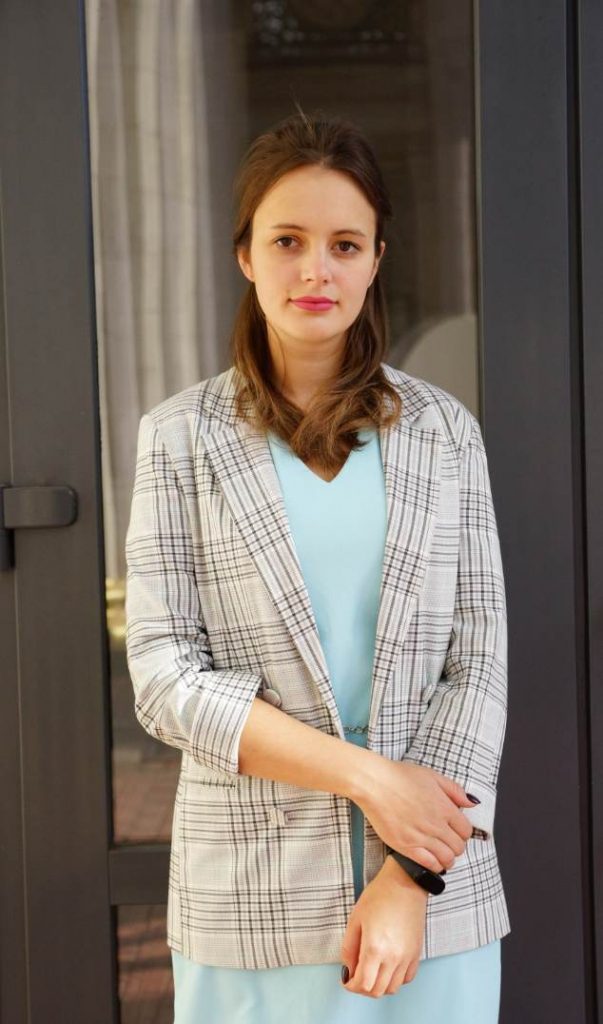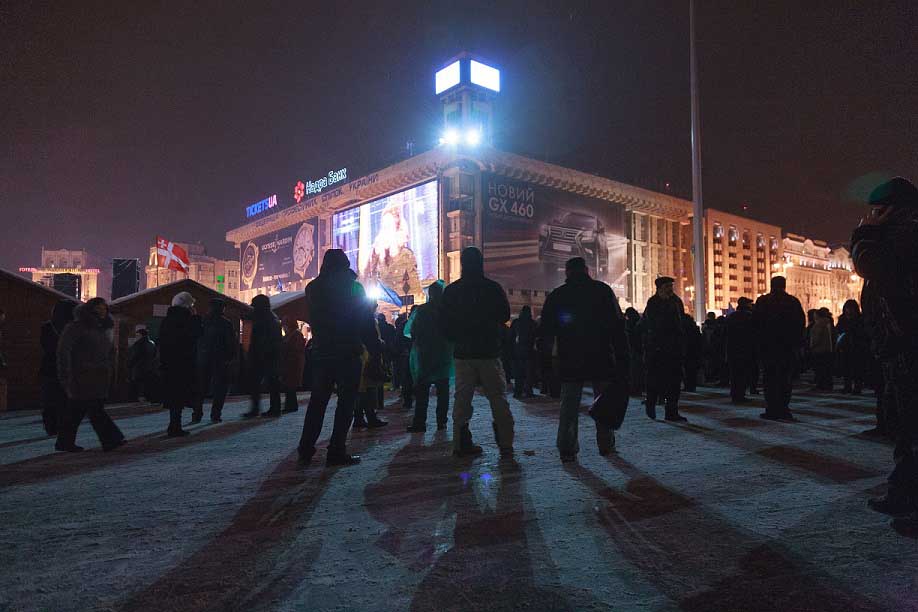In September 2022, seven months into Russia’s war in Ukraine, donations across the globe were already flooding in to help this proudly defiant nation. Daria Rybalchenko, executive director of the National Network for Local Philanthropy Development in Kyiv, needed to change course at the time by raising awareness, generating funds, and materializing effective tools to best assist her country. At 25, Rybalchenko now brings over five years of work in the private sector, having already overseen successful projects in this war-torn country that has earned universal admiration for its grit and determination.
Author: Jared Feldschreiber
Rybalchenko explains to CEA Magazine that the “principle of neutrality is not working for us in Ukraine. [In fact, it is] quite the opposite. International humanitarian actors need to reconsider their approach urgently. Since the war first started here in 2014, Ukraine’s non-governmental institutions, its charities, and humanitarian groups began to support the war effort, I realized that my country was facing an existential threat. This threat has only intensified as this is a question of national survival. Every Ukrainian realizes that.”
At its inception, the National Network for Local Philanthropy Development received its donations from the German Marshall Fund and Ukraine Rotary Club Kyiv International. Rybalchenko is an alum of AIESEC — an international youth-run and led, non-governmental and not-for-profit organization that provides young leaders the skills set necessary to achieve development and cross-cultural internships and global volunteer opportunities. Rybalchenko also admitted in September 2022 that “our resources are limited. We can’t wait for responses to grant applications for three months because everything changes in Ukraine [swiftly]. And yet, we closed the report with a budget of six million hryvnias with three active humanitarian programs. Besides that, we did one advocacy program, one program for youth, and a conference for forty-plus people. We continuously grow projects and work with new partners.”

Photo courtesy of D. Rybalchenko
Rybalchenko explains to CEA Magazine that “small organizations need unrestricted flexible funding provided rapidly [so that it] can demonstrate legitimacy in other ways; through actions on the ground and by the validation of our peers, the networks that we belong to, and from the communities we serve.”
Despite considerable monetary and weaponry assistance from allies, like the U.S. and other NATO members, missile attacks continue to hit cities throughout Ukraine. In the early hours on April 28, Russia hurled missiles across the country, killing at least twenty-five civilians in the first large-scale air strikes in two months, as reported by Reuters. In this attack alone on the city of Uman, Reuters reported that “at least twenty-three civilians were killed, including four children, with an estimated one hundred and nine people living in the part of the block that was hit and twenty-seven flats completely destroyed.”
Ukraine’s resilience and resistance remain its constant salvo to combat Russia’s military campaign against it. “Behind Ukraine’s remarkable resistance in the face of a larger military power is its societal resilience,” Alya Shandra, Euromaidan Press’s editor-in-chief, tells CEA Magazine. “Poll after poll shows that Ukrainians are united; we’re fighting an existential battle [and] for the right of Ukrainians to exist as a nation.”

Photo courtesy of D. Rybalchenko
Shandra’s leadership as a news editor and brave reporter has paralleled Ukraine’s existential hopes of achieving a pluralistic democracy, and thus, a permanent break from Russia. These major turning points, which Shandra has documented for close to a decade, include the impact of the 2014 Euromaidan Revolution that ousted the pro-Kremlin president Viktor Yanukovych and the subsequent Russian invasion of Crimea. These events became a terrible harbinger of things to come as Russia’s full-scale invasion of Ukraine began on February 24, 2022. “I’m just generally trying to grow and develop our media and expand the team,” adds Shandra.
“This is war; it’s not a conflict or a crisis as some media and respected intellectuals sometimes call what is happening,” Dr. Olha Poliukhovych, an associate professor at the University of Kyiv-Mohyla Academy, underscores to CEA Magazine. “The Russia-Ukraine war already started in 2014 with Russia’s annexation of Crimea and the military invasion of Donbas. It is Ukrainian resistance on [every level]. If Ukrainians won’t resist, Ukraine will vanish. The protection of our country is our number one priority. Ukraine must receive all necessary weapons, military equipment, and transport – including fighter jets – to defend itself.”
Russia’s war in Ukraine has devastated much of the country’s cultural heritage. One can look at it as a form of perversely patriarchal sabotage by a violent aggressor. “This war should be seen in terms of Ukraine-Russia’s historical relations as colonized and colonizer,” says Poliukhovych who is also a literary critic and scholar of Ukrainian literature. “Putin is supported by many Russians, so it reflects the aspirations of Russians and wants to erase Ukrainians and their culture. [Ukraine must] resist as much as possible, even in the immediate way [as] Ukrainian writers, journalists, scholars [continue to] defend their country and culture with guns on the frontlines.” Poliukhovych is also co-founder of the non-governmental organization, New Ukrainian Academic Community in Kyiv, and is a former Fulbright Fellow at the Harvard Ukrainian Research Institute.
On the cultural front, and in response to this brutal war, Ukraine has taken steps to withdraw Soviet-era and Russian books from its libraries. Its goal is to eliminate any vestiges of Russian culture within its schools and cultural institutions. This remains a daunting challenge as various aspects of Russian culture have long been heavily steeped within its zeitgeist. “The main thing is that Russian art and literature were forced here during the Soviet time. Even now, lots of young people in Ukraine speak Russian and listen to Russian music, and it’s devastating,” laments Maksym Bilousov, a Ukrainian photographer whose Euromaidan portraits, just years ago, were displayed prominently at Kyiv’s Mystetskyi Arsenal. “I know that a lot of artworks were moved from Kyiv to Lviv, but a lot of museums, which were under direct Russian presence, were looted.”

Russia’s subjugation of Ukraine’s identity is hardly new as “the policy of pacification or the desire to end the war does not work for Ukraine because Russia has been trying to destroy Ukraine for centuries — destroy its people, history, and culture,” argues Nataliia Kovalchuk, communications manager of the National Network for Local Philanthropy Development. “The Ukrainian army is not only a professional military. A big part of the army is made up of volunteers who, until February [2022], were information technology specialists, teachers, and public figures. Ukrainian people support the army because every family has a brother, mother, son, friend, neighbor, or colleague protecting our lives,” Kovalchuk, who steadfastly works with Daria Rybalchenko, tells CEA Magazine.
“For Ukrainians, the military is not [composed of] ‘Terminators’ from Hollywood, but by people we love,” continues Kovalchuk, citing the Ridnia Charity Fund in Lviv, as an example of the country’s determination and sacrifice. The Ridnia Charity Fund, says Kovalchuk, “has issued more than three hundred grants in 2022 of which sixty percent were directed to initiatives related to the army [such as] the creation of dry food [drives] and tailoring of clothes for the army. Another charitable foundation in Kharkiv, Toloka, is engaged in supporting cultural heritage. They use 3D scanning of architectural monuments to accurately reproduce buildings, which have been destroyed by [Russian] missiles.”
Kovalchuk also explains to CEA Magazine that her friend and colleague, Daria Rybalchenko, “was 16 years old when the war came to her home in the Luhansk region. She hid in her bathroom and began to distinguish weapons from the sounds of explosions. It is necessary to understand that the war cripples more than one generation of Ukrainians, and at the same time, makes them stronger. Conscientious Ukrainians are now being formed – who can no longer be fooled by these ‘fraternal nations.’ Young people want to help [as] they participate in fundraising, sorting humanitarian aid, or organizing various events to support the victims and the army. Our youth is strong and proactive, and our task is to support their enthusiasm, which helps them become an active part of society.”
Daria Rybalchenko, for her part, remains clear-eyed about her life’s goals while also being an optimist. “What I love is to explore Ukraine. I have a map of the country with more than one hundred points of where I want to visit, and I always add new dots to the map,” she says. “The best thing my parents gave me is life.”
Cover Photo Credit: Maksym Bilousov

Jared Feldschreiber is a freelance reporter and contributor to Central European Affairs Magazine. He is based in Warsaw, Poland, and often chronicles literary figures, filmmakers, and dissidents in nascent democracies. Reckless Abandon, his novella, is available worldwide.
Twitter: @jmfeldschreiber
Photo credit: Ilan Sherman



